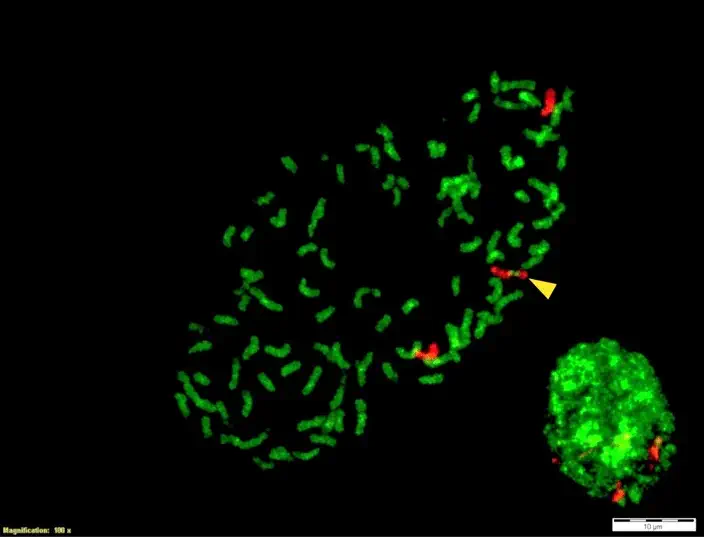Isolation and sequencing of a single copy of an introgressed chromosome from a complex genome for gene and SNP identification

Abstract
The large complex genomes of many crops constrain the use of new technologies for genome-assisted selection and genetic improvement. One method to simplify a genome is to break it into individual chromosomes by flow cytometry; however, in many crop species most chromosomes cannot be isolated individually. Flow sorting of a single copy of a chromosome has been developed in wheat, and here we demonstrate its use to identify markers of interest in an Erianthus/Sacchurum hybrid. Erianthus/Saccharum hybrids are of interest because Erianthus is known to be highly resistant to soil borne diseases which cause extensive sugarcane yield losses in Australia. Sugarcane (Saccharum) cultivars are autopolyploids with a highly complex genome and over 100 chromosomes. Flow cytometry for sugarcane, as in most crops, does not resolve individual chromosomes to a karyotype peak for sorting. To isolate a single chromosome, we used genomic in situ hybridization (GISH) to identify the flow karyotype region containing the Erianthus chromosomes, flow sorted single chromosomes from this region, PCR screened for the Erianthus chromosomes and sequenced them. One Erianthus chromosome amplified and sequenced well, and from this data we could identify 57 resistant type genes and SNPs in nearly half of these genes. We developed KASP SNP assays and demonstrated that the identified SNP markers segregated as expected in a small introgression population. The pipeline we developed here to flow sort and sequence single chromosomes could be used in any crop with a large complex genome to rapidly discover and develop markers to important loci.